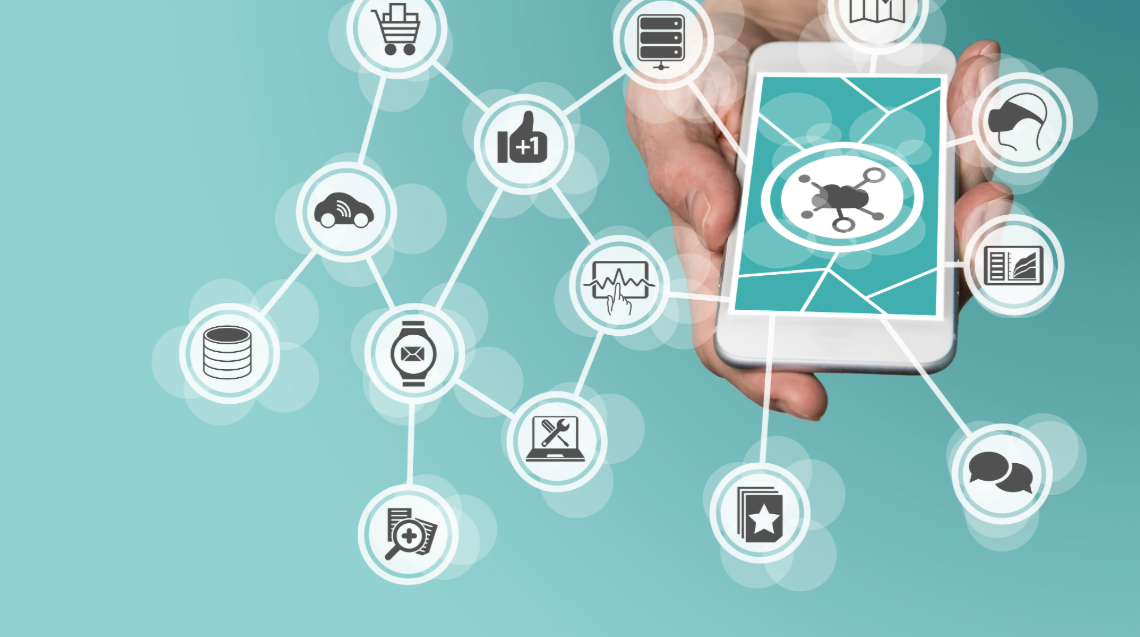Think about the last time you shopped online. Did you see a product suggestion that seemed oddly… perfect? Maybe an email about a flash sale tailored to your exact interests landed in your inbox? These aren’t coincidences. That’s the power of Personalization Strategies Using AI. Businesses today leverage AI, crunching mountains of data to craft experiences catered just for you.
This isn’t about guessing what you might like. Personalization Strategies Using AI, dig deeper and predict what you need before you even realize it yourself. AI technology makes you feel like you’re the only customer that matters, even amidst a sea of millions.
The Building Blocks of Effective AI-Powered Personalization
 You can’t build a house without knowing what makes it stand. You’ll need solid foundations, a good framework, and the right materials. Similarly, truly powerful AI-driven personalization doesn’t just happen; it’s crafted using essential data elements.
You can’t build a house without knowing what makes it stand. You’ll need solid foundations, a good framework, and the right materials. Similarly, truly powerful AI-driven personalization doesn’t just happen; it’s crafted using essential data elements.
Data Collection: Laying the Foundation
It all starts by gathering customer information, the raw material of personalization. We’re talking about demographics, browsing patterns, past purchases – the whole nine yards. AI thrives on information; the more you feed it, the better it becomes at recognizing patterns and preferences.
This data forms the bedrock of effective personalization strategies. For example, platforms like Amazon utilize AI to suggest products tailored to individual browsing and purchase histories.
Machine Learning: The Brains of the Operation
Machine Learning algorithms analyze this sea of data. The aim is to find hidden correlations and make intelligent predictions about future behavior.
This is where AI transforms from a simple data collector to a strategic advisor. Just as a seasoned chess player anticipates their opponent’s moves, Machine Learning predicts what a customer wants – sometimes even before they do.
User Profiles: Painting a Comprehensive Picture
Imagine having a detailed dossier on each of your customers, outlining their likes, dislikes, motivations, and aspirations. AI-powered personalization doesn’t require actual dossiers (which would be a tad creepy.).
Instead, it creates dynamic user profiles by piecing together information gathered during data collection. This goes way beyond basic demographics – it dives deep into individual preferences. User profiles act as AI’s secret weapon for delivering hyper-personalized experiences.
How Businesses Can Implement AI Personalization Strategies

Successfully weaving these elements together into a robust AI personalization strategy requires more than just awareness; it demands a strategic roadmap. The early days of AI were experimental; today, it’s about leveraging AI systems to drive tangible business outcomes. Here’s how:
1. Identify Clear Objectives
First and foremost, you need to define exactly what you aim to achieve. Are you trying to increase customer engagement? Improve conversion rates?
Maybe drive brand loyalty? Identifying specific, measurable goals from the get-go helps measure the success of any personalization effort. AI, as sophisticated as it is, still needs direction.
Clear objectives provide that crucial guidance. Without it, you risk AI chasing its tail instead of delivering results. For instance, you might set a target to boost customer retention by 15% over the next quarter by implementing personalized recommendations based on past purchases.
2. Segment Your Audience
Blanket marketing is so last century. It’s all about tailoring messages to specific customer segments. Instead of addressing every customer as a generic entity, divide them into groups based on shared characteristics or behaviors.
This way, your messaging becomes far more relevant and resonates more deeply. These segments are rarely static; they should be refined based on real-time customer data, allowing you to proactively anticipate evolving needs. You can observe time spent on site, reading habits, social media posts – these data points offer insights into what truly resonates with different customer groups.
3. Leverage the Power of AI-Driven Content Personalization
What if you could tailor website content to each visitor’s unique preferences in real time? That’s the magic of AI-powered content personalization.
Forget one-size-fits-all content. Dynamically adjust your web pages based on the user’s profile, their past interactions, or even their current location. The more relevant your content, the higher the chances of capturing their attention and ultimately converting them into a loyal customer.
4. Embrace Omnichannel Personalization
Customer journeys aren’t confined to a single channel. We browse, email, shop, and interact on various platforms.
To craft truly personalized customer experiences, businesses need a holistic approach. AI steps in to ensure consistency across every touchpoint. The goal is to create a unified brand experience. For example, imagine a customer browses shoes on your website.
Using AI-powered personalization, you could then send personalized emails showcasing those exact shoes, offer recommendations for similar styles, and even retarget them on social media platforms they frequently use. This cohesive, personalized approach significantly increases the chance of converting browsers into buyers and fostering lasting brand loyalty.
5. A/B Testing and Optimization – Never Stop Learning
Even with all the sophisticated algorithms at your disposal, continuous testing and optimization are paramount. Continuously experiment with various personalization strategies to discover what truly resonates with your audience.
Embrace the A/B testing approach to refine and improve personalization tactics over time. After all, even the most advanced AI benefits from a little human intuition.
Real-World Examples of AI Personalization
Let’s dive into how real businesses have wielded these strategies to drive revenue and redefine their customer experience. Think about a few examples we all experience nearly daily.
Netflix: A Masterclass in AI-Powered Recommendations
Remember those late-night Netflix rabbit holes we’ve all tumbled down? The platform’s uncanny ability to recommend shows is the perfect embodiment of AI-powered personalization. Netflix has mastered the art of understanding individual taste and serving content tailored to individual preferences, keeping users glued to their screens (and happily paying monthly subscription fees.).
Spotify: The Soundtrack of Your Life
Discover Weekly. Release Radar. If those words evoke a sense of excitement, then you’ve experienced Spotify’s personalization prowess.
The music streaming giant leverages AI to curate playlists aligning with individual music preferences, keeping users engaged and solidifying their position at the forefront of music discovery. It’s a constant source of new (and surprisingly spot-on) musical recommendations.
Ethical Considerations
Like all potent tools, AI-powered personalization can be misused, and businesses need to prioritize user data and privacy while creating more relevant and helpful online interactions. By adhering to data protection regulations and maintaining transparency about how they’re utilizing AI-driven insights, you build a foundation of trust. In today’s privacy-conscious world, it’s a critical differentiator.
It’s also important to strike a balance. While personalization is powerful, bombarding users with hyper-targeted ads can feel intrusive. The key is to use AI ethically and responsibly, ensuring customers feel understood and valued, not spied upon.
FAQs about Personalization Strategies Using AI
Here are answers to some commonly asked questions:
| Question | Answer |
|---|---|
| What exactly is AI-powered personalization? | It involves using AI to tailor user experiences based on collected data. Think of it as using technology to deliver the right message to the right person at the right time. It goes beyond simply addressing customers by name; it’s about understanding their needs and desires and curating interactions that resonate on a deeper level. |
| What are the key benefits of AI personalization for businesses? | There are numerous benefits, including increased customer engagement, higher conversion rates, improved customer retention, enhanced brand loyalty, and a significant competitive advantage. AI personalization empowers businesses to break through the digital noise and forge deeper connections with their audience. |
| Is AI-powered personalization only relevant for large businesses? | Absolutely not. While it’s true that large companies often have more resources and data, AI personalization is accessible to businesses of all sizes. There are numerous AI tools and platforms designed specifically for small and medium-sized businesses, making it easier than ever to leverage the power of personalized customer experiences. |
| What is natural language processing, and how does it relate to AI personalization? | Natural Language Processing (NLP) is a branch of AI that focuses on enabling computers to understand and process human language. NLP allows AI systems to analyze text-based data like social media activity, search queries, and customer reviews, extracting valuable insights to power personalization. |
| What does the future hold for AI-driven personalization? | The future of AI personalization is incredibly exciting. We can expect even more sophisticated AI algorithms, real-time personalization across multiple channels, and a deeper understanding of individual behaviors and preferences. AI-powered chatbots will become increasingly adept at engaging in human-like conversations, and we may even see the rise of personalized customer experiences that blur the lines between the digital and physical worlds. |
Conclusion
In conclusion, businesses embracing the possibilities of Personalization Strategies Using AI, armed with ethical practices and a dedication to delivering truly meaningful experiences, will be the ones that shape not just customer expectations but an entirely new landscape for customer engagement.
From increased revenue and customer loyalty to deeper engagement, the impact of AI-driven personalization on revenue is undeniable. Data analysis and real-time data are key in this transformation, allowing businesses to leverage purchase history and product recommendations to enhance customer satisfaction.
Understanding that every interaction matters in the hyper-competitive digital landscape is crucial. With a dash of creativity and the right AI-powered tools, any business can transform customer data into a treasure trove of opportunities. The future of customer engagement hinges on it, and businesses that successfully embrace AI-powered strategies will have a clear competitive edge.
